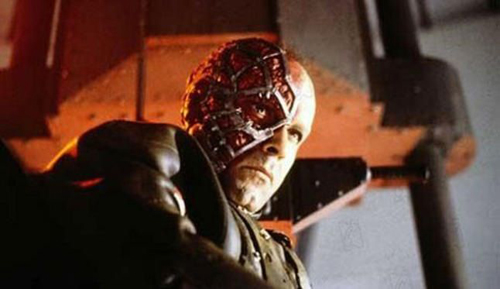
When Natural Born Killers came upon the scene in ’94, I was all for it, mostly for the Quentin Tarantino connection, but, even with the travesty of The Doors, director Oliver Stone was no slouch. I haven’t viewed it since late that decade, so I thought it was high-time time to reconnect. Sadly, I should have let it stay buried in Hollywood’s mass grave of pretentious cinematic outings.
What once was a kinetic path to demonic satire, is now a try-hard commentary on the beguiling mass-media pandering while exploiting its audience for Hot Topic-heavy merchandise like wall posters in this pre-Boondocks Saints era.
In other words, it had a lot to say about nothing much.
Of course, Tarantino disowned this “story by” script as Stone does what he does best: overstuffing a film with overblown, artificial characters and set pieces, veering the classic convertible to total immolation. Sure, U-Turn was terrible, but NBK made it a special viewing party for the latent arsonist in next bedroom.
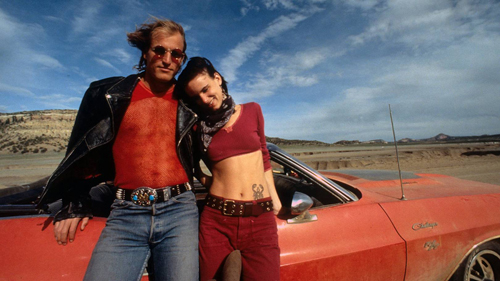
With a mixtape-like soundtrack — starting with languid Leonard Cohen’s “Waiting for the Miracle” before double-timing into L7’s “Shitlist” — we start with a diner massacre with all the cartoon buffoons the law allows. Great?
I see what Stone does here — brutal violence with white payback, right? — but it seems too close to caustic lampoonery to take it very seriously, which I did for most of 1994. “It’s art, man!” I’d say defending it, as I would scream until I was hoarse until I became nearly mute.
Wish massive cellblock Mickey (Woody Harrelson) and dreamy nightmare girl Mallory (Juliette Lewis) as our guides, we take on criminal culture with wide-angled lenses, fish-eye perspectives, stock-footage immolation, dark parody slayings and plenty of Stone’s well-worked trampling of the Indigenous people for shock value.
Playing to crowds of preening disciples in fake blood, both Harrelson and Lewis are in a LSD trip to hell, but the acid is bits of paper to look like drugs; the psychotic conventions are too cold-blooded for the stars of White Men Can’t Jump and The Other Sister.
Even then, most of this hollow body count is on Stone’s Karo-splattered shoulders, with too much of Mickey and Mallory’s shocking exploits coming to no rhyme and no reason, with none of the characters, motivations or camera angles to justify the whole thing and its furor.
Or maybe that’s the whole joke? —Louis Fowler

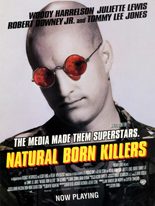


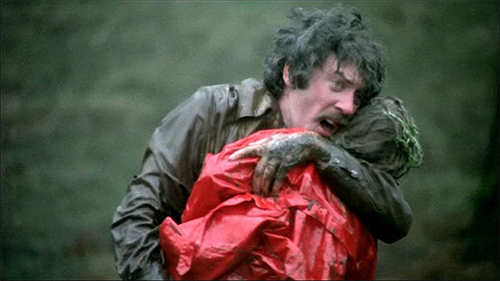


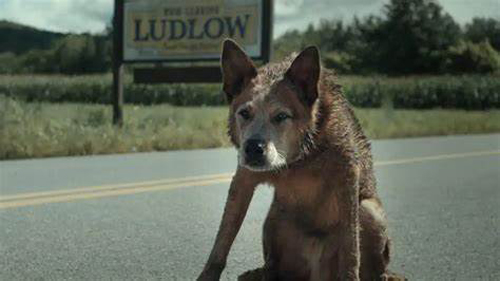
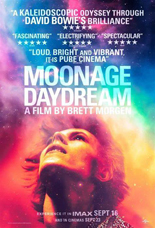
 Of all the notable deaths in the past decade, I still haven’t got over the demise of David Bowie. Even though his corporal body was given to a higher power — whatever that power is — his true testament is the art he created for the world, be it music, film or, as we soon learn, paintings.
Of all the notable deaths in the past decade, I still haven’t got over the demise of David Bowie. Even though his corporal body was given to a higher power — whatever that power is — his true testament is the art he created for the world, be it music, film or, as we soon learn, paintings.
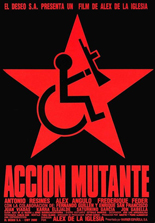
 In early 1995, I skipped class to attend a comic book-like convention near the now-demolished Holiday Inn on Oklahoma City’s north side. Even though the film bootleggers were always present in the exciting ads of cult-movie zines, this show was the first time I had seen them and their wares in person.
In early 1995, I skipped class to attend a comic book-like convention near the now-demolished Holiday Inn on Oklahoma City’s north side. Even though the film bootleggers were always present in the exciting ads of cult-movie zines, this show was the first time I had seen them and their wares in person.